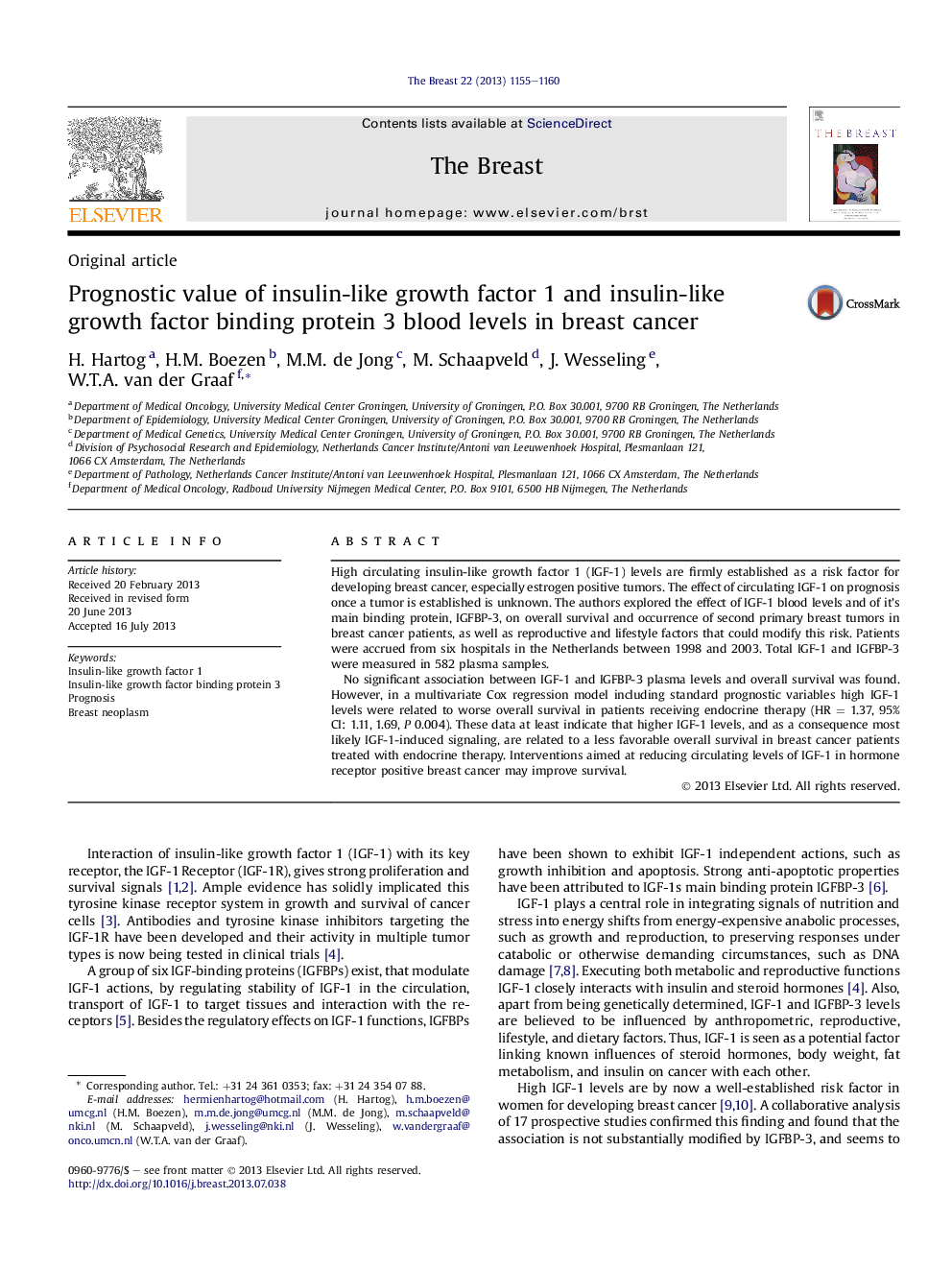| Article ID | Journal | Published Year | Pages | File Type |
|---|---|---|---|---|
| 6170174 | The Breast | 2013 | 6 Pages |
High circulating insulin-like growth factor 1 (IGF-1) levels are firmly established as a risk factor for developing breast cancer, especially estrogen positive tumors. The effect of circulating IGF-1 on prognosis once a tumor is established is unknown. The authors explored the effect of IGF-1 blood levels and of it's main binding protein, IGFBP-3, on overall survival and occurrence of second primary breast tumors in breast cancer patients, as well as reproductive and lifestyle factors that could modify this risk. Patients were accrued from six hospitals in the Netherlands between 1998 and 2003. Total IGF-1 and IGFBP-3 were measured in 582 plasma samples.No significant association between IGF-1 and IGFBP-3 plasma levels and overall survival was found. However, in a multivariate Cox regression model including standard prognostic variables high IGF-1 levels were related to worse overall survival in patients receiving endocrine therapy (HRÂ =Â 1.37, 95% CI: 1.11, 1.69, P 0.004). These data at least indicate that higher IGF-1 levels, and as a consequence most likely IGF-1-induced signaling, are related to a less favorable overall survival in breast cancer patients treated with endocrine therapy. Interventions aimed at reducing circulating levels of IGF-1 in hormone receptor positive breast cancer may improve survival.
